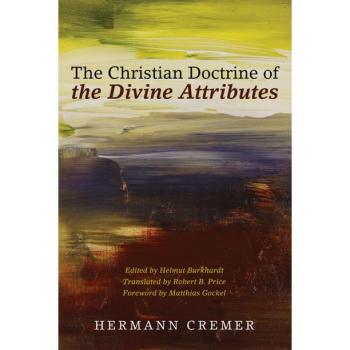An Alarming Trend in American Culture: The Decline in Reading Literature
According to an article first published in The Washington Post the National Endowment for the Arts (NEA) conducted a survey in 2015 that discovered a drastic decline in American adults reading habits. The NAE has been conducting this survey annually since 1982. During that time adult reading of literature (literary fiction). In 1982 57 percent of American adults confessed to reading at least one work of literature in the previous year. In 2015 that number dropped to 43 percent. The 2015 survey showed that women read literature much more than men, but the drops in literary reading happened across the board. No group was immune to it.
Experts and scholars speculate about many possible reasons for this dramatic decline in reading novels. People’s attention has gone more toward video games, Facebook, the internet, and watching movies at home.
I suspect few people who pay attention to culture will be surprised by these discoveries. Bookstores are closing all over the country. Anyone who has lived long enough and been an avid reader and patron of bookstores for very many years knows this. Think of all the chain bookstores that have either gone out of business entirely or shuttered many of their stores. Does anyone remember Waldenbooks? There was a time when virtually every mall in America had at least one bookstore. Most now have none. Oh, there may be a Barnes & Noble nearby, but have you noticed how much floor space there has been diverted away from books to other merchandise—toys, games, greeting cards, maps, journals?
Sidebar: *The opinions expressed here are my own (or those of the guest writer); I do not speak for any other person, group or organization; nor do I imply that the opinions expressed here reflect those of any other person, group or organization unless I say so specifically. Before commenting read the entire post and the “Note to commenters” at its end.*
Why does this trend matter? Well, as the Post article explained, studies have shown that reading fiction, especially literary fiction, increases empathy in people. Could the decline in reading literature help explain another noted trend the Post article reported—Americans becoming less empathetic? Some connection between the two trends seems obvious.
Some years ago, perhaps about the same time these trends were first noticed, there was a nation-wide campaign called “Reading Is Fundamental.” It used the acronym RIF. I do not remember who devised and promoted the campaign, but it was nationwide. For a year or two it was impossible to miss it because it was on television public service “spots,” on billboards, and in newspapers and magazines.
Ask any American educator who has been in the profession many years and he or she will support this decline and probably its noted effects such as decline in students’ abilities to write well. Many people have asked me how I write so well and so much. My first answer is: I have always been a reader—of literature. I was raised in semi-poverty, but books were always in our home because of trips to the local and school libraries as well as to the “library bus” that came to our neighborhood regularly. (Does anyone else remember those?) My grandparents and parents made sure my brother and I always had more than enough books to read and did not monitor our reading. They monitored our television watching closely and we did not go to movies.
It’s easy to decry this trend, but I would like to focus attention on one particular aspect of it: the gender gap. According to the NEA survey about half of all women report having read at least one book of literature in the past year. Only about a third of all men reported the same. Well, perhaps not much can be done to help men read, but much more could be done to help boys love reading. But what is being done? There are many programs across the country to promote girls’ interest in the STEM disciplines and professions (science, technology, engineering, mathematics). Where are the programs to promote boys’ interest in reading? I have never heard of one.
Also, there are far too few novels written and published for boys. It seems that boys have largely been written off (pun intended but apropos) when it comes to fiction and even magazines (except about sports and video-games). I have kept an eye on bookstores for years and have noticed a dramatic decline over the year in bookstores’ sections for boys. A typical bookstore now will have a large section of “American Girl” books and other books especially for girls. Also magazines for girls. (My local bookstore carries and displays Girls Life but not Boys Life—a magazine I grew up on.) A couple years ago I was in an airport on my way to visit my grandchildren. I went into a bookstore and perused the childrens’ books section intending to buy one for my granddaughter and one for my grandson. In the section labeled “Childrens” there were only books for girls; not a single book that would interest any boy I know.
I fear our culture has largely given up on boys when it comes to many matters not related to sports or violence—especially when it comes to literature. Why should we be surprised, then, if they become less empathetic than girls and women? Is there a connection? I think so. Many boys grow up on violent video games, movies and television programs. Too few grow up with any interest in reading literature. Turning that around will require a cultural focus on creating literature for boys and young men and actively promoting it to them—in schools and at home.
We all (Americans) have a stake in this. If more boys loved reading literature instead of playing violent video games and being obsessed with sports and violent movies and television programs, our culture would, I believe, experience an increase in overall empathy resulting in less crime.
*Note to commenters: This blog is not a discussion board; please respond with a question or comment solely to me. If you do not share my evangelical Christian perspective (very broadly defined), feel free to ask a question for clarification, but know that this is not a space for debating incommensurate perspectives/worldviews. In any case, know that there is no guarantee that your question or comment will be posted by the moderator or answered by the writer. If you hope for your question or comment to appear here and be answered or responded to, make sure it is civil, respectful, and “on topic.” Do not comment if you have not read the entire post and do not misrepresent what it says. Keep any comment (including questions) to minimal length; do not post essays, sermons or testimonies here. Do not post links to internet sites here. This is a space for expressions of the blogger’s (or guest writers’) opinions and constructive dialogue among evangelical Christians (very broadly defined).















